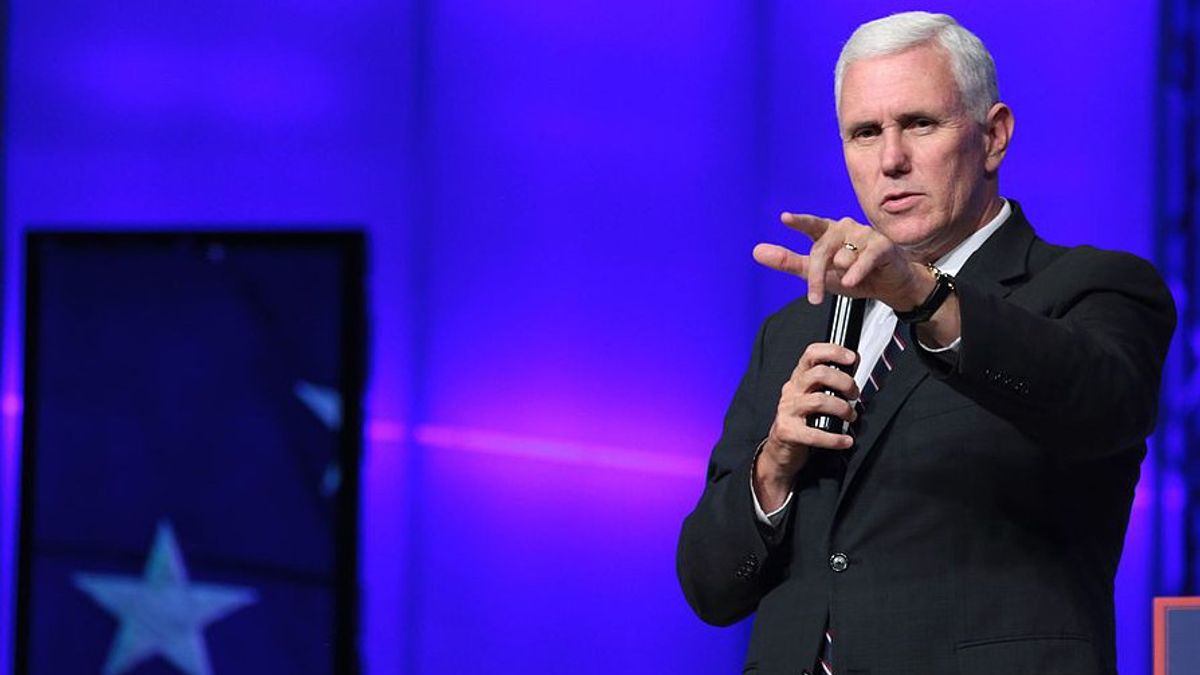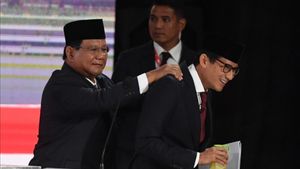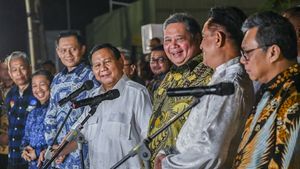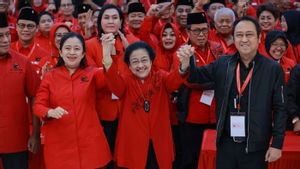JAKARTA - On June 7, 1959, Michael Richard Pence, also known as Mike Pence, was born in Columbus, Indiana. Idolizing President John F. Kennedy and having lost his position in the congress twice, Mike Pence succeeded in occupying the seat of Vice President of the United States (US) with Donald Trump in the 2016 US Election.
Launching Biography, Sunday, June 7, Pence's path to his current position is not easy. In 2000, Pence successfully ran for the US congress after failing twice before.
She also hosted conservative radio and TV shows in the 1990s. Pence also rose to a strong position as chairman of the Republican conference, before finally being elected Governor of Indiana in 2012. Pence is known to be very dedicated to continuing Indiana on a path to success through fiscal responsibility, economic development, and child education opportunities.
During his tenure as Governor of Indiana, Pence managed to make several breakthroughs. Pence achieved the largest state tax deduction in Indiana history and also lowered business personal property taxes as well as corporate income taxes to strengthen the state's competitiveness in attracting new investment.
He also issued tax policies that earned Indiana citizens a decent salary. From an educational standpoint, Pence expanded school options, increasing educational opportunities for Indiana residents by signing into law a state fund for preschool education in Indiana.
Pence has also managed to close the Indiana skills gap by making career and technical education a priority in every Indiana high school. Under his leadership, the US invested more than US $ 800 million in roads and bridges in Indiana.
Controversial lawIn March 2015, Pence was causing a firestorm in Indiana when he signed the Religious Freedom Restoration Act. Critics of the law argue it could be used by individuals and businesses to discriminate, particularly against the LGBT community, on the basis of religion.
The people of Indiana protested in the form of boycotts, petitions and travel bans. The number of protests led Pence to change the law. The changes came at the last minute after conservative groups like Indiana Right to Life asked Pence to veto improvements.
"In the midst of this heated debate, I have prayed earnestly for wisdom and compassion, and I have felt the prayers of people all over this state and across this nation. For that I will be eternally grateful," said Pence in a statement.
"I believe I have resolved this controversy and made it clear that everyone should feel welcome and respected in our country. That is the best thing for Indiana," added Pence.
Trump-Pence in the 2016 election
In July 2016, Trump declared that he and Mike Pence would run as candidates for president and vice president of the US. This he conveyed via his Twitter account.
"I am pleased to announce that I have chosen Governor Mike Pence as my vice president," Trump said.
Pence's choice to accept Trump's invitation has to do with his strong ties to the Republican Party, particularly social conservatives. Pence is also seen as a safe political option for Trump, who also considers candidates who reflect his big personality.
But Pence made it clear that he was more than willing to play the "forward" role. This was also demonstrated by Pence's harsh attitude towards Hillary Clinton during the rally with Trump.
On November 8, 2016, Pence was elected as US Vice President. Trump-Pence's stunning victory was seen as a major rejection of establishment politics by blue-collar Americans and workers.
On January 20, 2017, Pence was sworn in by US Supreme Court Justice Clarence Thomas. Pence took the oath of office before Donald Trump was sworn in as the US's 45th president.
A week after the inauguration, Pence spoke at the March for Life anti-abortion rally in Washington, DC "Rest assured, we will not tire," Pence told activists before the march. "We will not rest until we restore a culture of life for ourselves and our descendants."
In the first weeks of the Trump administration, Pence also defended President Trump's controversial rules such as banning immigrants from Muslim-majority countries from Iraq, Syria, Iran, Sudan, Libya, Somalia and Yemen for at least 90 days. At that time Pence also supported the suspension of the entry of refugees for 120 days and prohibited Syrian refugees from entering the US indefinitely.
The English, Chinese, Japanese, Arabic, and French versions are automatically generated by the AI. So there may still be inaccuracies in translating, please always see Indonesian as our main language. (system supported by DigitalSiber.id)










